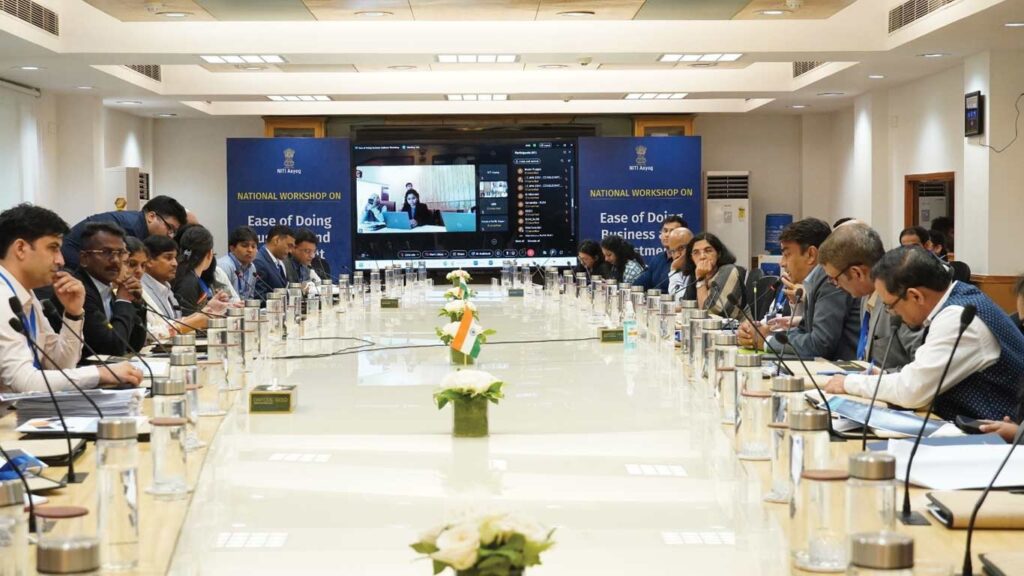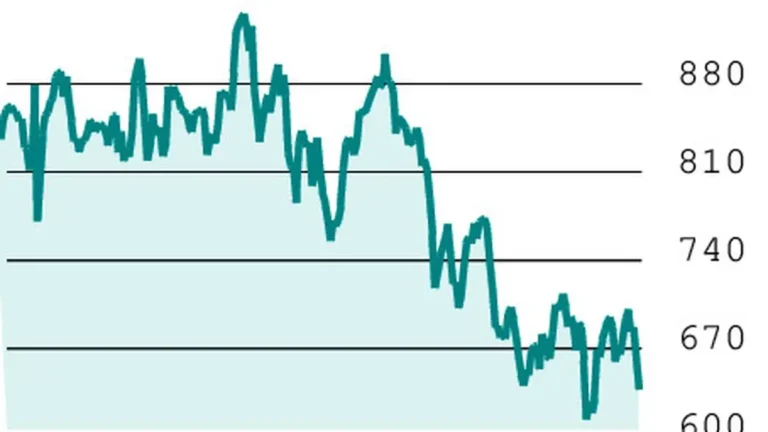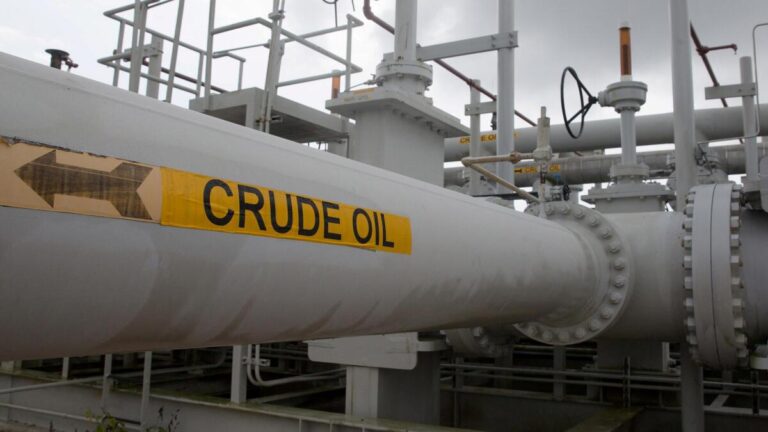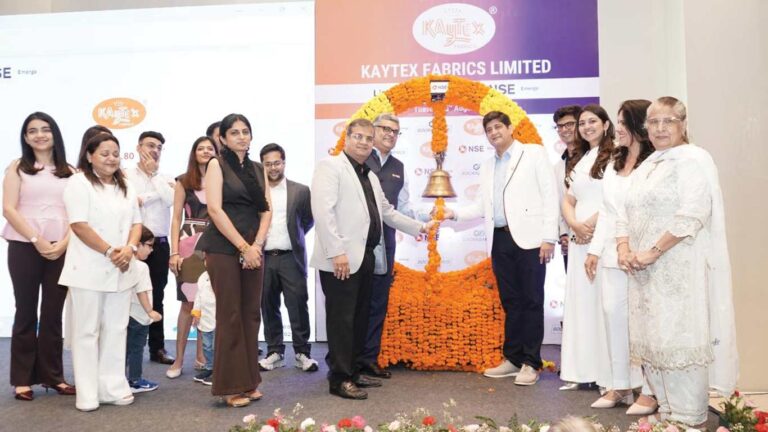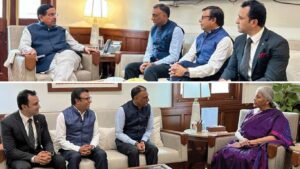New Delhi, Jul 11 (KNN) NITI Aayog organised a high-level workshop on Ease of Doing Business and Investment Promotion in New Delhi, bringing together senior policymakers from central and state governments to accelerate business reforms across India.
The event was designed to facilitate dialogue between various levels of government and industry stakeholders on critical reform initiatives.
The workshop was conducted by Rajiv Gauba, Member, NITI Aayog, and featured a special address by B.V.R. Subrahmanyam, CEO, NITI Aayog.
The event also included participation from the Department for Promotion of Industry and Internal Trade (DPIIT), Department of Revenue, Ministry of Micro, Small and Medium Enterprises (MSME), and representatives from leading industry bodies including the Confederation of Indian Industry (CII), Federation of Indian Chambers of Commerce and Industry (FICCI), and Federation of Indian Micro and Small & Medium Enterprises (FISME).
In his special address, B.V.R. Subrahmanyam, CEO, NITI Aayog, underscored the critical role of state-level execution in shaping India’s overall investment climate.
He called for streamlined systems, enhanced accountability, and coordinated efforts between the Centre and states to make India the most attractive and dependable destination for global capital.
Delivering the keynote address, Rajiv Gauba, Member, NITI Aayog, noted that Ease of Doing Business is a work in progress and stressed the importance of reforms at the municipal level within states.
He also urged all states to undertake their own version of Jan Vishwas-type reforms, aimed at reducing regulatory overreach and fostering business confidence.
S.C.L. Das, Secretary of the Ministry of MSME, highlighted the need to strengthen the institutional interface of MSMEs with the Central Board of Indirect Taxes and Customs (CBIC) and state/union territory governments.
He further underlined the importance of ensuring affordable finance, skill development, digitisation, and robust forward and backward market linkages for MSMEs to thrive in a competitive business environment.
The response of industry was mixed.
“Without reviewing the old legislation and removing discretionary clauses therein, mere online filing would not change realties at ground. There is a critical need to subject legacy laws to a thorough Regulatory Impact Assessment (RIA)”, said Anil Bhardwaj, Secretary General of FISME.
“An effective Grievance Redressal mechanism is urgently needed to handle difficulties with compliances such as fire, building maps, pollution control etc and banking”, he added.
The deliberations focused on seven core reform areas essential for investment facilitation and improving ease of doing business at the sub-national level.
These areas included decriminalisation of laws, deregulation and compliance burden reduction, Business Reform Action Plan (BRAP) implementation, development of industrial infrastructure, single window clearance systems, financial and taxation reforms, and investment promotion strategies.
During the session on decriminalisation and compliance reform, several states emphasised a shift toward enhancing the ‘Speed of Doing Business,’ focusing on reducing the number of stages in the business lifecycle to enable faster and more seamless operations for enterprises.
There was significant emphasis on aligning state-level actions with the national Business Reform Action Plan (BRAP) framework to ensure that reforms lead to measurable and comparable improvements.
Industry representatives advocated for the enactment of national-level legislation to harmonise decriminalisation and compounding provisions across states.
They also suggested the introduction of a Trusted Taxpayers Programme for both direct and indirect taxes to incentivise compliance and promote a more facilitative regulatory environment.
During the workshop, states showcased models for plug-and-play industrial infrastructure, hassle-free land allotment, and investor-focused service delivery.
Discussions also highlighted the need for end-to-end digitisation of State Single Window Clearance Systems, with emphasis on integration, predictability, and measurable turnaround times.
Participants discussed how fiscal incentives could be made more predictable, timely, and easier to claim, especially for MSMEs.
The final session on Investment Promotion Strategies stressed the need to institutionalise investment promotion as a continuous, core state function rather than an event-based activity.
States presented innovative, sector-specific strategies grounded in local strengths and global demand trends.
(KNN Bureau)


